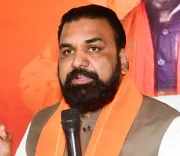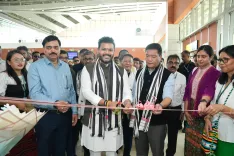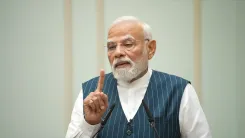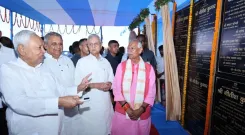How do GST reforms reflect the ‘Swasth Bharat’ vision by making essentials affordable?
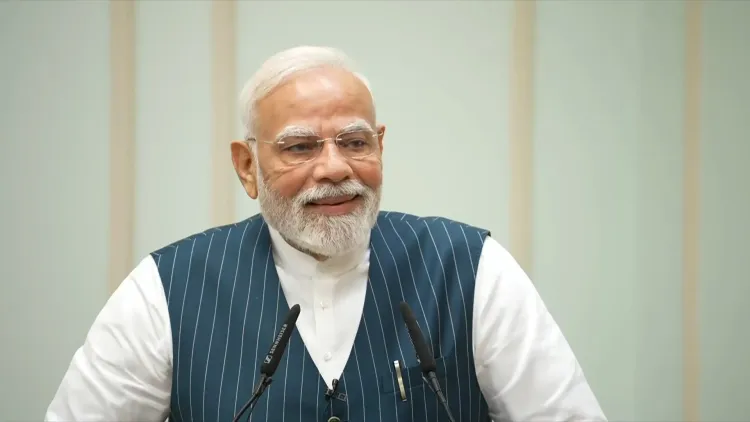
Synopsis
Key Takeaways
- Next-gen GST reforms aim to enhance affordability of essential items.
- Reflects the vision of 'Swasth Bharat' for improved health.
- Strengthens rural economy, specifically the dairy sector.
- Complemented by initiatives like Ayushman Bharat.
- Supports nutritional security for families.
New Delhi, Sep 4 (NationPress) Prime Minister Narendra Modi remarked on Thursday that the innovative GST reforms represent a significant move towards establishing a healthier and more robust India.
During an interaction with users on X, responding to comments from economists, corporate professionals, and middle-class citizens about the GST 2.0 reforms, PM Modi articulated that these initiatives embody the vision of 'Swasth Bharat' by making essential food items, cooking necessities, and protein-rich products more accessible for families nationwide.
“The #NextGenGST initiatives reflect the vision of 'Swasth Bharat' by making essential food items, cooking essentials, and protein-rich products more affordable for families across India,” PM Modi emphasized.
“In conjunction with efforts like Ayushman Bharat and POSHAN Abhiyaan, these reforms reinforce our dedication to enhanced health, balanced nutrition, and a better quality of life for every citizen,” the Prime Minister added.
While discussing the broader reform journey, PM Modi pointed out that the last decade has been characterized by bold decisions that have shaped India's economic landscape.
He reminisced about corporate tax reductions that stimulated investments, the implementation of GST that established a unified market, and alterations in personal income tax that improved the ease of living.
According to the Prime Minister, the new GST reforms continue this journey by simplifying the system, ensuring fairness, and fostering growth.
PM Modi also mentioned that India's fiscal discipline has enhanced global confidence and improved the country's credit ratings, thereby laying a firm groundwork for a Viksit Bharat.
Additionally, the Prime Minister linked these reforms to the rural economy, particularly emphasizing the dairy sector.
He acknowledged that the role of India’s Annadatas has been pivotal in ensuring nutritional security and bolstering the rural economy.
“Through initiatives like the Rashtriya Gokul Mission, support for cooperatives, and ongoing reforms, our government is committed to transforming India’s dairy sector. The #NextGenGST reforms are another step towards empowering countless dairy farmers, enhancing value addition, and making dairy products more affordable for every household,” PM Modi concluded.


